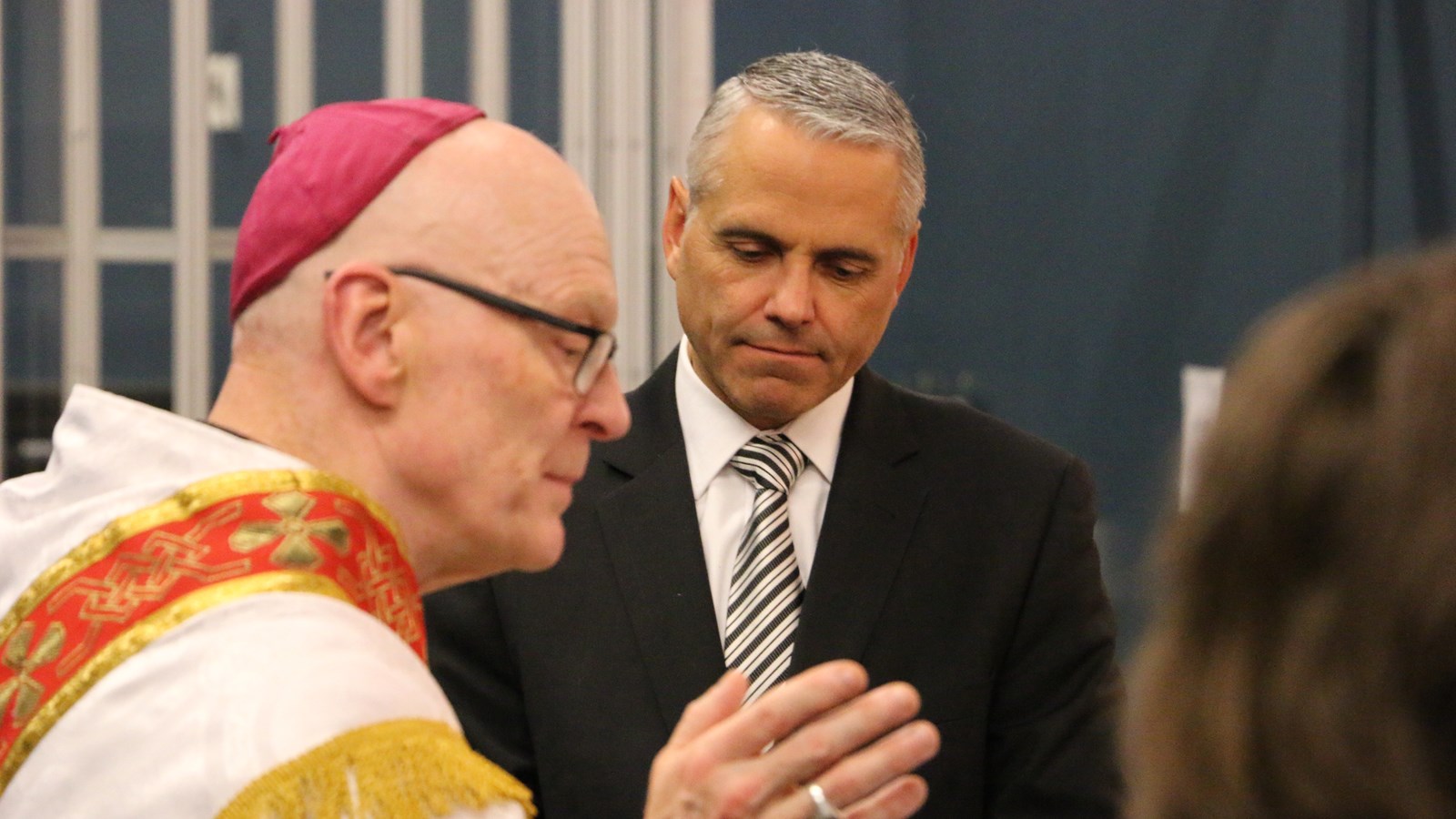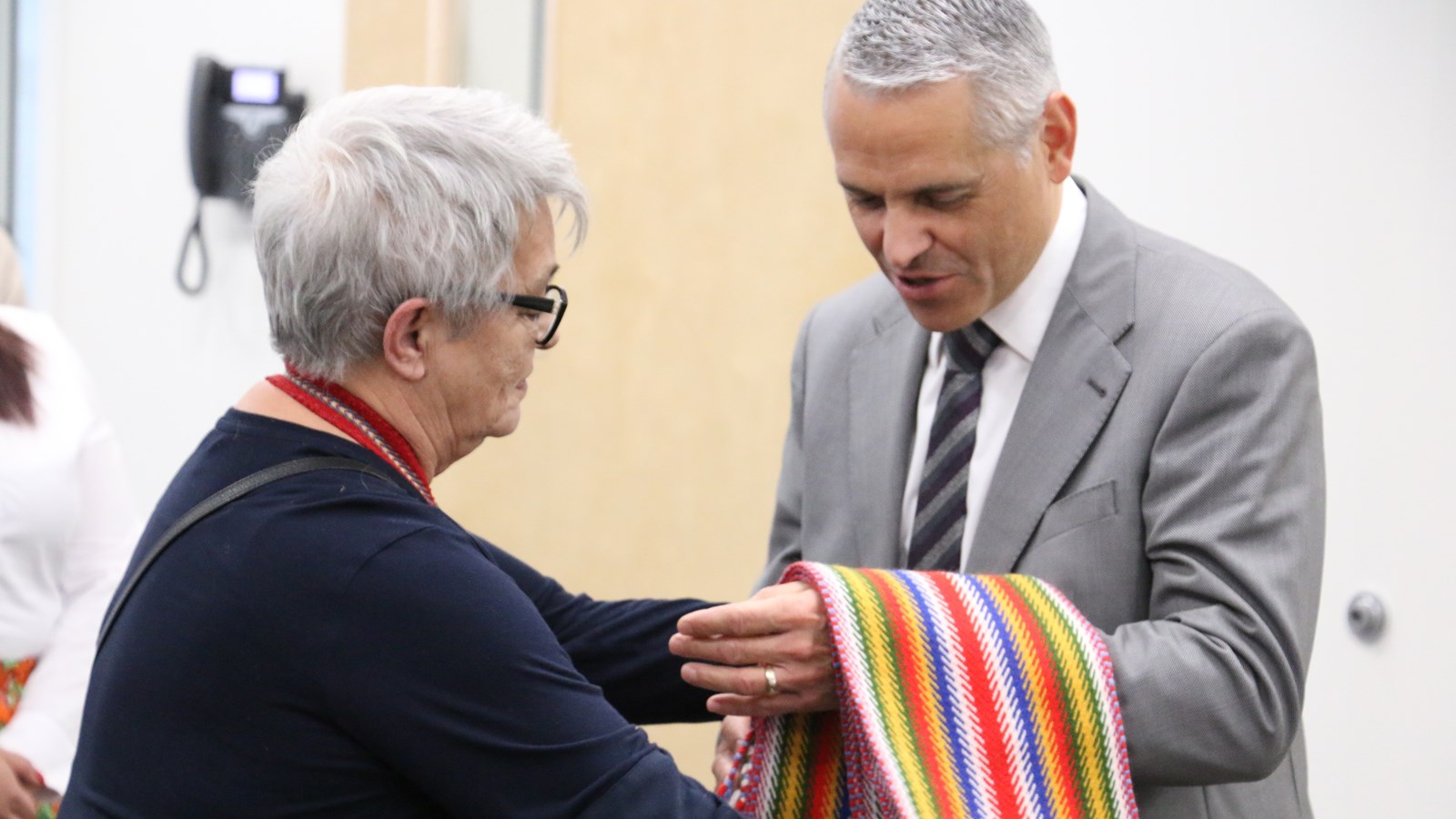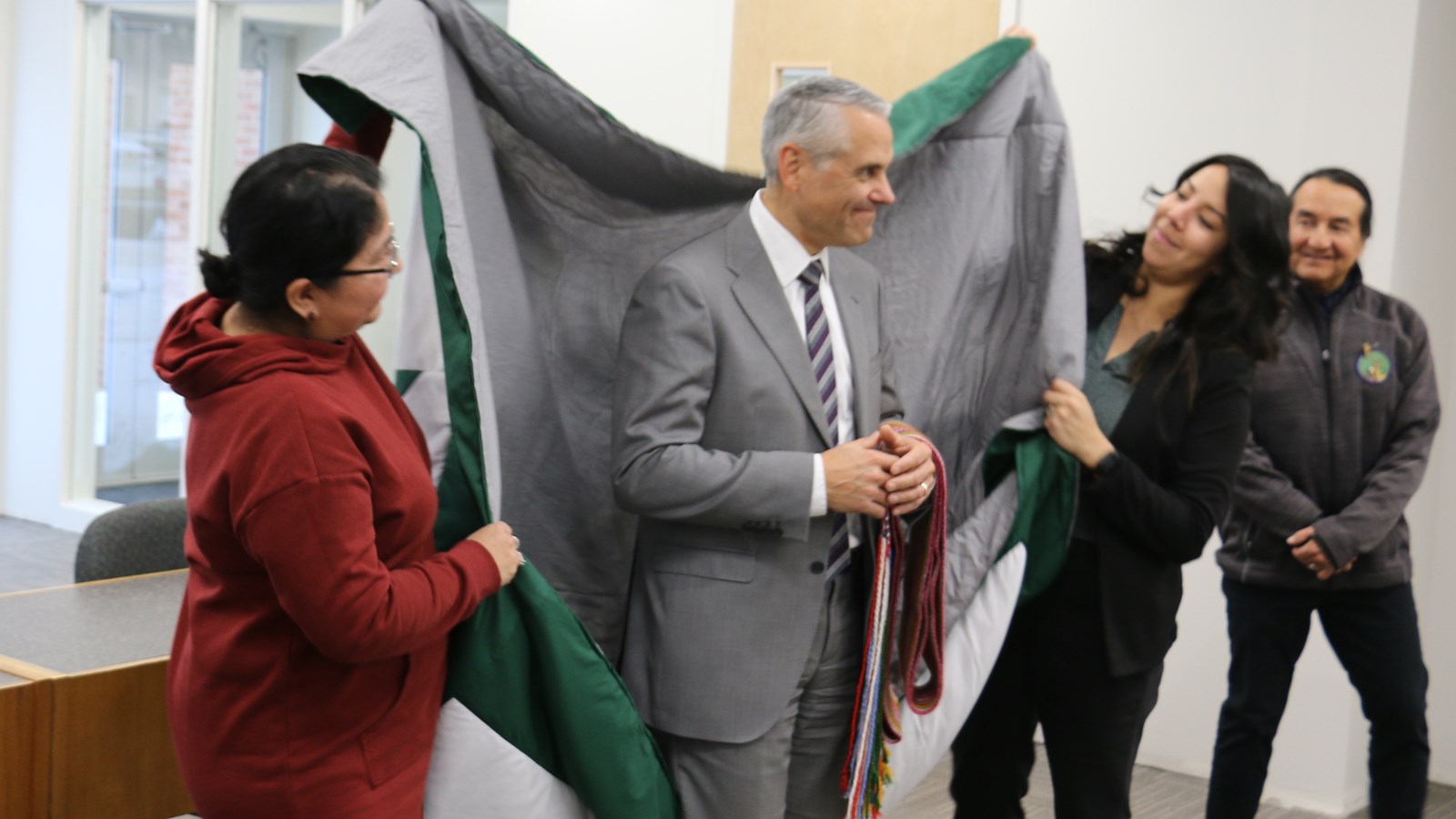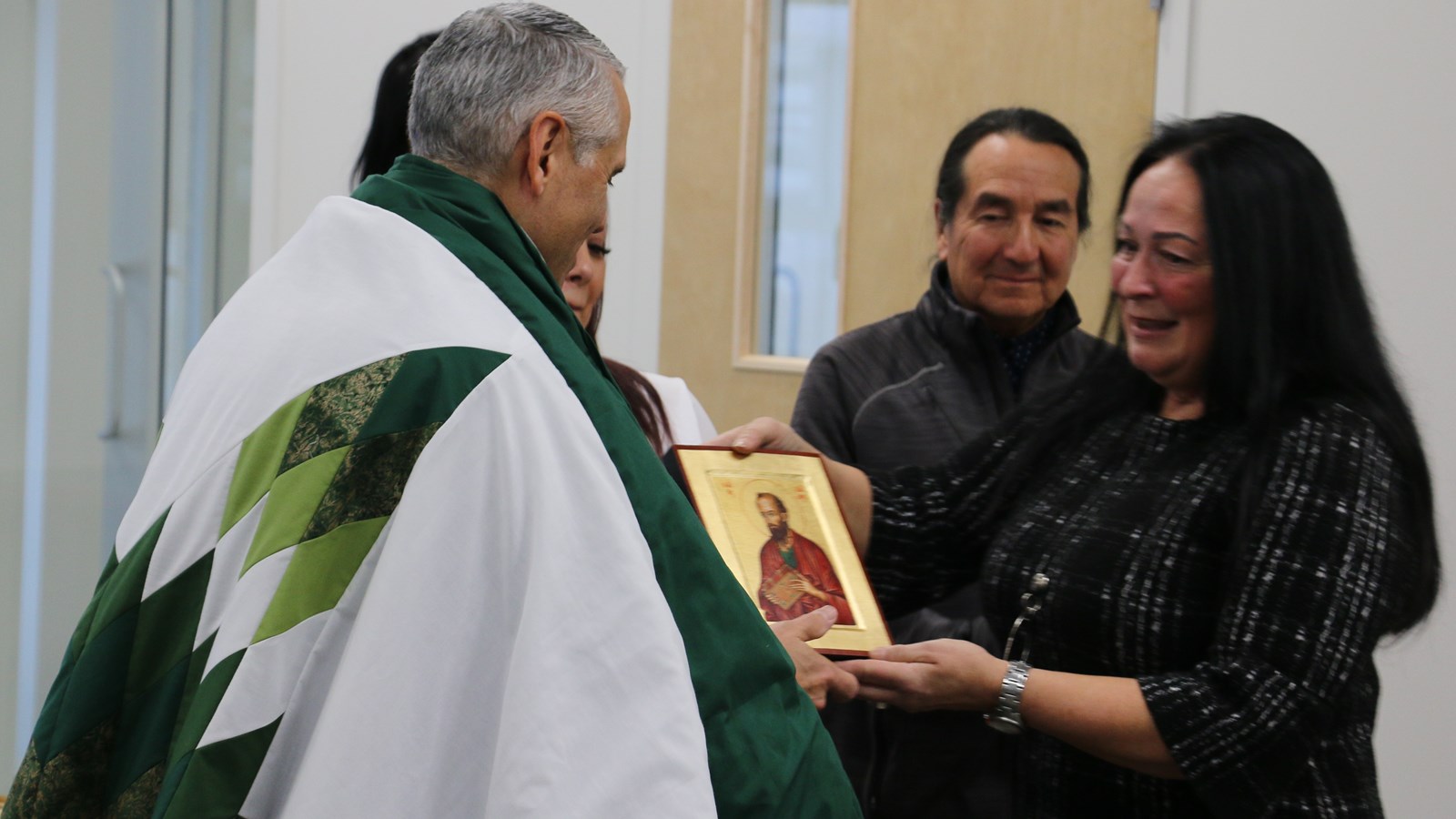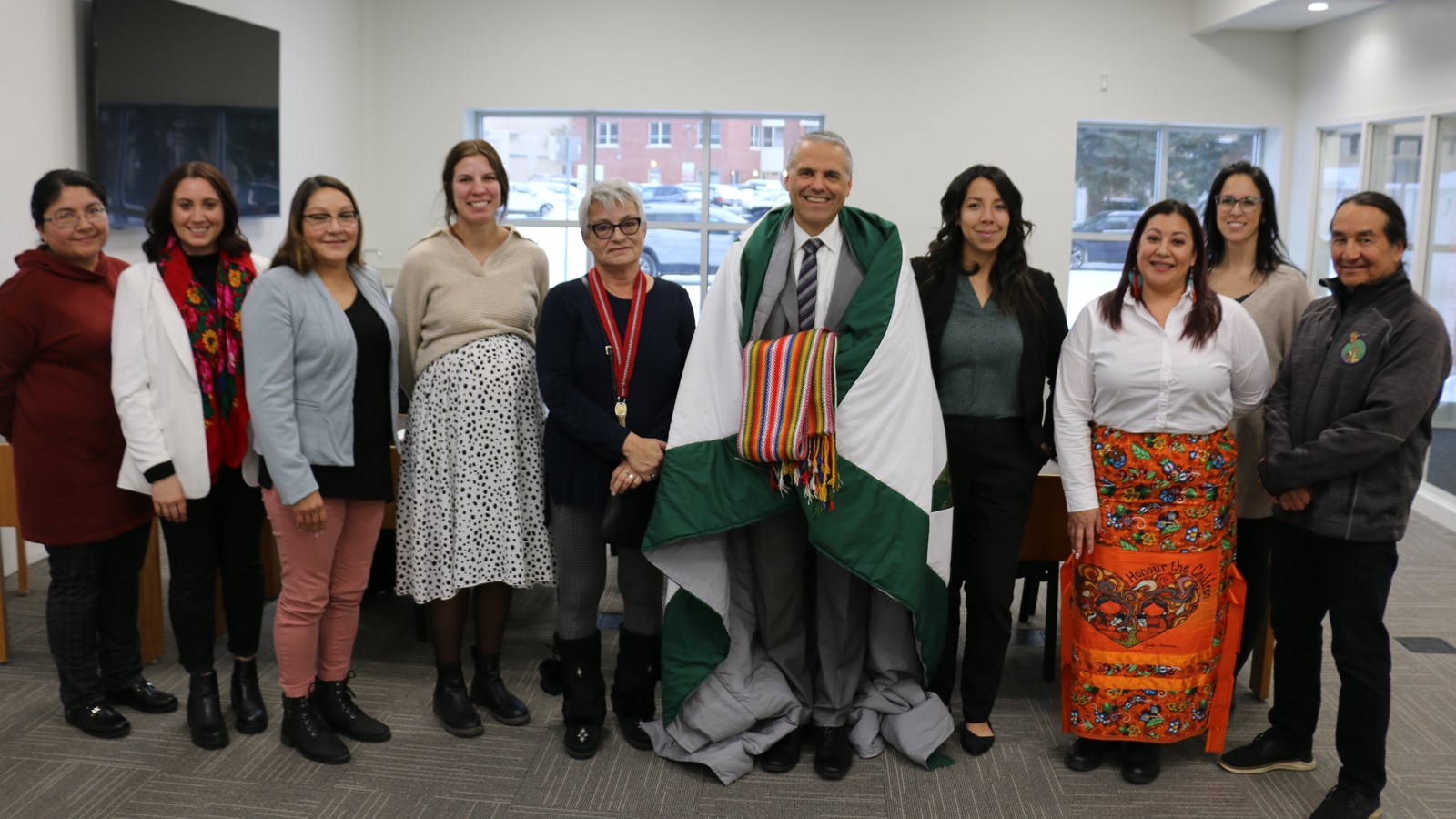Q&A with retiring director Greg Chatlain

As 2022 winds down, so does retiring director of education Greg Chatlain’s career with Greater Saskatoon Catholic Schools. We asked Greg to reflect on his time with the division and share some memories, challenges and successes. (Content is edited for length and clarity.)
GSCS: Do you remember what it was like stepping into your first classroom on that first day?
Greg: Vividly! It was a healthy mixture of excitement and pure terror! I looked pretty young back then (before all of the grey hair), and as students in my Grade 6 room were filtering in, one of the parents came up to my desk and asked, “You’re not the teacher are you?” So yeah, I was off to a good start.
Working in education has been quite the journey—each new group of students, new parents and caregivers, new staff, etc. all brought with it many challenges and blessings.
I recall as I was labouring in repetitive, boring jobs to work my way through university, that I would not work in a boring, repetitive job again. Well, teaching and administration have been everything but boring.
GSCS: Ten years ago, when you began your role as director, did you start with any particular goals in mind?
Greg: When I stepped into the role a decade ago, I really didn’t know what I didn’t know. Education is in service of the community, and as such, needs to be responsive to the changing context and need.
What we understood about teaching and learning back in the 1970s, for example, has dramatically changed. Research has really changed our understanding, and therefore, our pedagogical approaches and tools. It has really been an exciting time.
That being said, a few goals I had when I began have remained: faith development and support for our students and staff; tackling the lack of equity in educational outcomes for our First Nations and Métis students; and improving educational outcomes for all students.
GSCS: Do you feel like you accomplished those goals?
Greg: I feel that we have made good strides along those paths to improvement, but I don’t know if we can ever say we have accomplished those large, complex parts of our work. We have learned a great deal on the journey and have had to change in response. That is a hallmark of a good learning organization, though—not being blind or deaf to what you learn during your improvement efforts but rather building that into your ever-evolving plans and work.
GSCS: The division has grown a lot over the past 10 years. What do you think has attributed to that growth?
Greg: Oh my yes, growth in student enrolment has really been something. Since I began in this role, we have grown about 6,000 students. To put that in perspective, that’s an average annual growth of 600 students, or the equivalent of two good-sized schools each year.
I believe there are many factors that contribute to this growth. Perhaps most obvious is the growth of our city and surrounding area. Saskatoon and the cities and towns surrounding it are vibrant, growing communities that are wonderful places to raise families. There has been a good deal of interprovincial and international migration to this beautiful area.
I think what we offer resonates with families. We help them in their duty as the first and primary educator of their children. We have amazing staff who give families a warm welcome and a strong sense of belonging in our schools. This combined with the best quality of faith-based education we can manage in a safe, well-organized manner in clean, bright and well-kept facilities.
We are honoured that families continue to choose a Catholic education for the most important part of their lives: their child.
GSCS: First Nations, Métis and Inuit education has taken a more prominent role over the last several years. Why is this important to you and the school division?
Greg: As I had mentioned earlier regarding some of my goals early in my tenure, the stark lack of equity in educational outcomes for our Frist Nations and Métis students had to be tackled. For so many reasons, this must be a major area of focus for improvement. What I knew at the start turned out to be barely the tip of the iceberg. I learned early on the need to build relationships with key people and groups. Thanks to the leadership, generosity and patience of many on this journey, we made some good strides down the very complex, difficult, but incredibly important path. We have a very long ways to go yet, as we well know.
GSCS: What role do you see Catholics and Catholic education playing in healing and reconciliation with Indigenous people and communities.
Greg: I will offer a couple of comments, but they won’t even scratch the surface. The Catholic Church, and by extension Catholic education, played a very significant role in the history of residential schools of our country.
When we know better, we must do better. Education, as we have seen, can be a very powerful tool. We have a very important role to play in the truth and reconciliation process, and in particular, in working to counter some of the impacts of residential schools.
This is a very difficult journey—one we must not simply be on, but rather one we must help lead in close partnership with our First Nations, Métis and Inuit communities and leaders.
GSCS: Do you have a favourite or fondest memory from your career as an educator?
Greg: On my, I can’t pick one. All of them would involve the people I was blessed to work with. The joy, the laughter, the tears as we worked with our community’s children and youth. Children are amazing—as are the people crazy enough to choose to work with them each day!
GSCS: You’ve faced a few challenges over the years. What would you consider the biggest or most significant challenge?
Greg: Oh boy that is a tough one (long pause). The big things come to mind first, such as the pandemic, or the Theodore case or the budget of 2016-17, for example. For sure, those were challenges, but the biggest challenge is what goes in behind the scenes to respond to those challenges (whatever that may be): bringing the right people together, organizing our resources, developing a response, taking action, and communicating that. And one of the biggest challenges within that, is communication.
We bring together in our schools each day the equivalent of the fifth largest city (by population) in the province. Communicating complex issues and responses to 2000-plus staff in 50-plus buildings, and to 20,000-plus students belonging to more than 15,000 families—each with varying degrees of interest and involvement—is no easy task. Various communication platforms and social media give us more tools, but also fragment communication more and more. That’s a big challenge.
GSCS: I won’t call you an old dog, but you’ve learned some new tricks over the past 32 years. What advice do you have for new teachers or staff?
Greg: Hmm that is a tough question, as I have learned so much through the years. Teaching and working in education is such a complex endeavour. I guess that might be the biggest lesson that I have learned through the years: our work is so complex and important that no one can do it alone. Even if someone could, they shouldn’t.
The combined efforts of everyone’s strengths and capacities is necessary for us to be able to respond to the educational needs of our children and youth. No one person can possibly manage it all—so we need to work together.
Probably that along with a commitment to continued learning about our craft (whatever that is). Our world’s understanding about how children learn, and how we can best support that process, continues to rapidly develop. We must keep investing in ourselves so that we can be as best trained as possible. Our children and youth deserve our best.
GSCS: Do you have any closing thoughts or a parting message?
Greg: I feel like I’ve said enough, but I will add a big thank you to everyone. First and foremost, I thank God for the many blessings in my life. To my family who supported me, my friends and colleagues who challenged me to learn and grow, and the students and families I have been privileged to serve—thank you!

